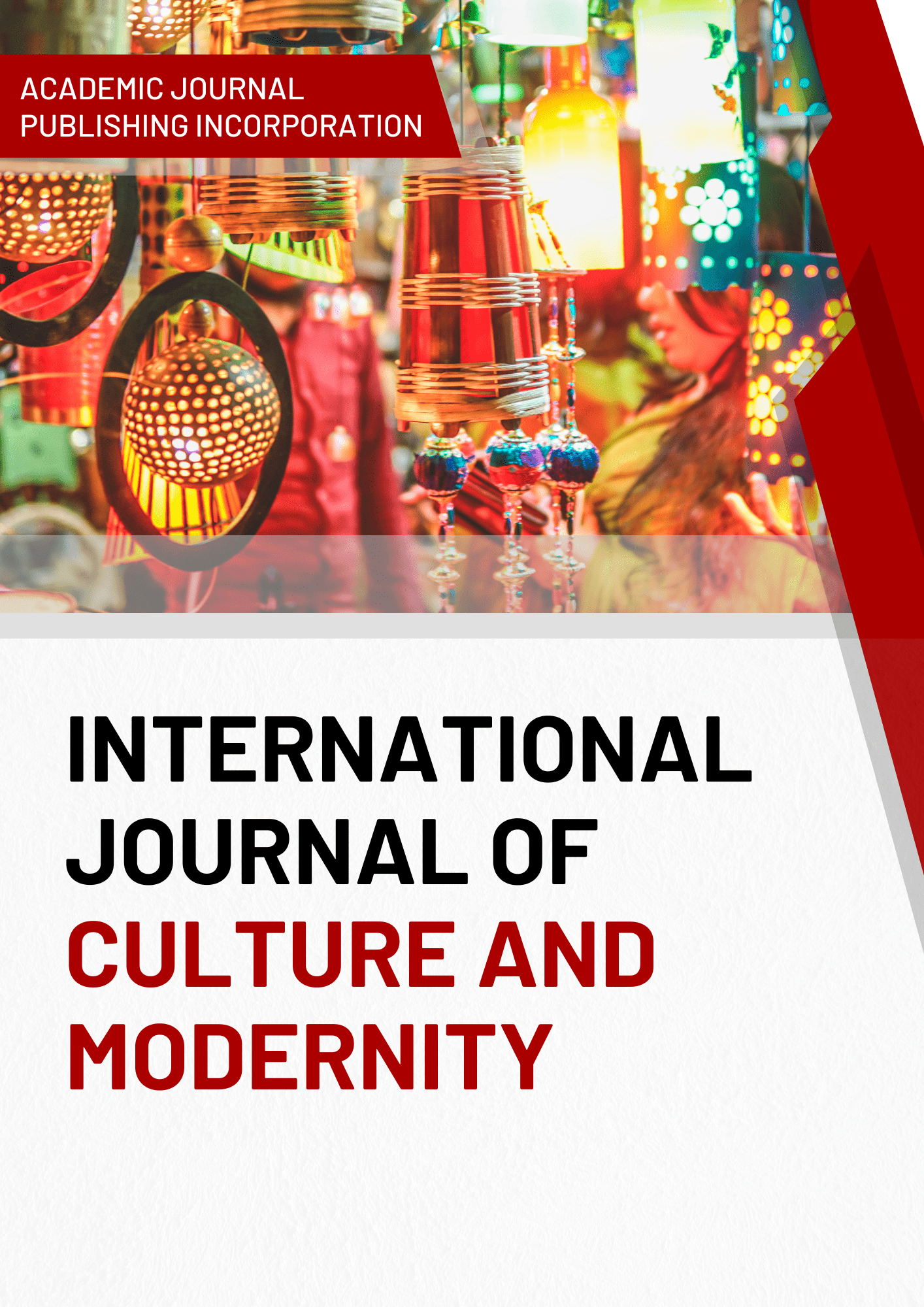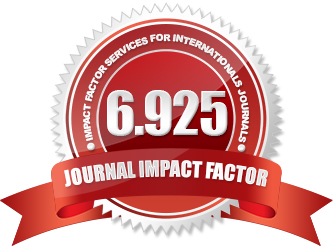Lexico-Etymological Properties of the Oldest Theonyms
DOI:
https://doi.org/10.51699/ijcm.v17i.322Keywords:
theolinguistics, linguistics, onomastics, theonyms, religious texts, godAbstract
This article reveals the lexical and etymological features of the oldest theonyms. Views on onomastics are stated.Teolinguistics is interpreted as a new direction.
References
https: //www.definitions.net/definition/theolinguistics; www.yourdictionary.com; en.wiktionary.com (date of access: 12.01.2019).
Bakirov M., Fenomen parallelizma drevneyshix mifologicheskix teonimov.-Kazan,2011
Ishoqov M.,Sodiqov Q.,Omonov Q.,Mangu bitiglar.-Toshkent,2009.
Trubetskoy N.S. Mysli ob indoevropeyskoy probleme // Voprosy yazykoznaniya. – 1958. –№1.
Uluqov N.,Oʻzbekcha diniy matnlarda teonimlar va tajribalarni tekshirish.-Namangan,2020.
Yusupova Sh., Diniy matnlarning lingvopragmatik tadqiqi. Filol. fan. falsafa doktori....diss.avtoref. – Farg‘ona, 2021 yil.
Hakimov, M. (2020). REPRESENTATIVE OR REPORTING ACT. Theoretical & Applied Science, (2), 677-680.
GAZIYEVA, M. M., & BURXANOVA, M. M. (2021). About innovative methodology in mother tongue lessons. THEORETICAL & APPLIED SCIENCE Учредители: Теоретическая и прикладная наука,(12), 501-504.
Gaziyeva, M. (2020). The Scientific Paradigm Of Acoustic Phonetics. AcademicLeadership (Online Journal).
Gazieva, M., & Burxanova, M. (2020, December). PROSODICS ON RESEARCH. In Конференции.
Газиева, М., & Бурханова, М. (2020). УРҒУ–ПРОСОДИКАНИНГ АСОСИЙ ЭЛЕМЕНТИ. МЕЖДУНАРОДНЫЙ ЖУРНАЛ ИСКУССТВО СЛОВА, 3(1).
Khakimov, M., & Burkhanova, M. ON THE ESSENCE OF THE CONCEPT OF PERFORMATIVES
Sayyora, Q. (2022). FORMATION OF TEXT ANALYSIS IN LINGUISTICS. Modern Journal of Social Sciences and Humanities, 4, 58-61.
Khakimov, M. K., & ugli Melikuziev, A. L. (2022). The History of Paralinguistic Researches. International Journal of Culture and Modernity, 13, 90-95.
Hakimov, M., & Gaziyeva, M. (2020). Pragmalingvistika asoslari. Farg'ona.
Hakimov, M. (2020). REPRESENTATIVE OR REPORTING ACT. Theoretical & Applied Science, (2), 677-680.
Hakimov, M. (2001). Ozbek tilida matnning pragmatik talqini.
Nurmonov, A., & Hakimov, M. (2001). Theoretical formation of linguistic pragmatics. Uzbek language and literature, 4, 54-58.
Hakimov, M. (2001). Pragmatic interpretation of the text in Uzbek language. Author's abstract of the dissertation of the doctor of philological sciences. Tashkent.
Kuldashev, N., Avazbek, D., & Parviz, A. (2022). Opinions of Our Ancestors on Language and Speech Purity. Journal of Ethics and Diversity in International Communication, 2(4), 10-16.
Ibragimova, E. I., Zokirov, M. T., Qurbonova, S. M., & Abbozov, O. Q. “Filologiyaning dolzarb masalalari” mavzusidagi Respublika ilmiy-amaliy internet-konferensiya materiallari: Ilmiy ishlar to‟ plami.–Farg‟ ona, 2018.–113 sahifa.
Turdaliyevich, Z. M., & Farhod, I. (2022). Loiq Is the Successor of the Great Figures Of Tajik Literature. International Journal of Culture and Modernity, 14, 51-55.
Maftuna, G. (2022). Methodology of Organizing Problem Lessons in Higher Education. International Journal of Culture and Modernity, 14, 72-77.
Kuldashev, N. ., Parviz, A. ., & Avazbek, D. . (2022). Fazli Namangani’s “Majmuai Shoiron” Review Zullisonayn Issue. Spanish Journal of Innovation and Integrity, 6, 429-433.
Gulrux, J. ., Maftuna, G. ., E’zozxon, O. ., Muhabbat, U. ., & Abdumalik, S. . (2022). The Method of Onomastic Conversion in the Formation of Toponimes in the Fergana Region. Spanish Journal of Innovation and Integrity, 6, 451-456.
Porubay, I. F., & Ibragimova, E. I. (2021). ABOUT THE FEATURES OF SOCIAL MEDIA DISCOURSE (BASED ON THE EXAMPLES OF RUSSIAN AND ENGLISH LANGUAGES). Theoretical & Applied Science, (12), 482-486.
Khamrakulova, S., & Zokirov, M. T. (2022). Phraseological units expressing old age of a human being in the English and Russian languages. ISJ Theoretical & Applied Science, 1(105), 280-283.
Zokirov, M. T. (2019). About the general characteristic of bilinguism. Scientific Bulletin of Namangan State University, 1(10), 260-265.
Zokirov, M. T. (2021). ABOUT THE INTERRELATIONSHIPS OF LINGUISTICS AND PSYCHOLOGY. Theoretical & Applied Science, (4), 422-425.
Turdaliyevich, Z. M. (2022). Actual Problems of Bilingualism in a Multi-Ethnic Environment. International Journal of Culture and Modernity, 13, 17-23.
Zokirov, M. (2007). Lingvistik interferensiya va uning o'zbek-tojik bilimimizda namoyon bo'lishi. MDA-Toshkent.
Zokirov, M., & Isomiddinov, F. (2020). December. ABOUT THE HOLES OF LANGUAGE LANGUAGE DICTIONARY. Конференции.
Hojaliyev, I., & Shodiyeva, A. EXTRALINGUISTIC SIGNS OF THE OFFICIAL STYLE.
Amonov, M. U. (2021). On Arab borrowings, denoting the name of the profession, which is actively used in the Uzbek language. ISJ Theoretical & Applied Science, 11(103), 863-866.
Амонов, М. (2016). АЛИШЕР НАВОИЙ ҒАЗАЛЛАРИДА ҚЎЛЛАНИЛГАН АРАБИЙ ИЗОФАЛАРНИНГ ТУРЛАРИ. Актуальные научные исследования в современном мире, (6-1), 91-94.
Amonov, M., & Azizova, F. (2022). Thematic Groups of Arabic Words in Boburnoma. International Journal of Culture and Modernity, 13, 82-89.
Rustamovna, U. N., & Turdalievich, Z. M. (2020). Frame Structure of The Concept “GOLD” in Navoi's Poem “ISKANDER'S WALL”. Iranian Journal of Language Teaching Research, 9(16), 346-357.







